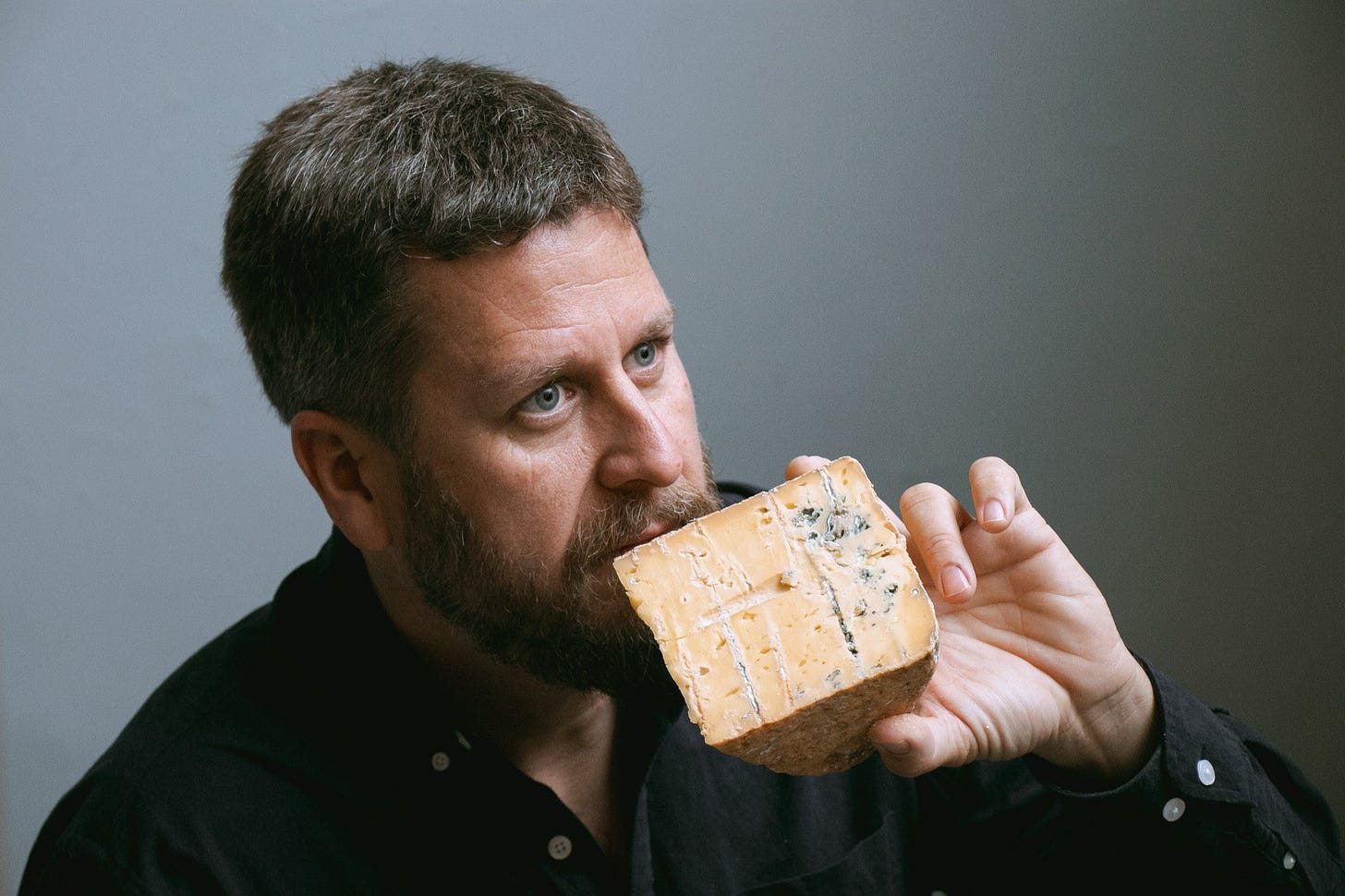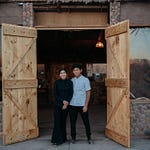Martin Rosberg is a natural cheesemaker that lives in Colonia del Sacramento, Uruguay, a small community across the Río de la Plata from Buenos Aires, Argentina. He is Argentine and once ran a boutique hotel and restaurant in Buenos Aires but moved away to find a quieter life on a small farm with his family. He built a few stilted houses that he still rents on Airbnb, then he started making breads and eventually a few cheeses to give to the guests there. He really fell down the cheese rabbit hole, however. This led him to the world of natural cheesemaking, which is kind of like the natural wine of cheese: using traditional methods with natural cultures and without expensive equipment. It’s essentially how cheesemaking was done for 8,000 years until a century ago when modern practices entered into the craft. Martin now makes 20 kinds of natural cheeses from his farm in Uruguay, several of them his own unique styles. He also teaches workshops on natural cheesemaking and gives tastings around the world, including at his farm.
Martin has been a good friend of mine for 15 years or maybe. I’m not even sure anymore. He used to be clean shaven and wear suits. Now he is this cheesemaker on a farm with all these crazy cheeses. Anyway, he was leading a few workshops at the very beautiful Coltsfoot Valley Farm in Cornwall, Connecticut, which isn’t that far from me so I went and picked him up and he stayed at my house for a couple of days on his way back to New York City. One of the most Connecticut things ever happened on the drive: two cars got into an accident trying to navigate going in and out of a narrow-covered bridge. Back at my place we of course tasted some cheeses and drank wine, but we decided to do this somewhat sporadic podcast conversation from my barn where I always record, while Juliana was able to join by laptop set up in front of the couch. Martin was one of the first guests on this podcast and it’s always good to hear from him, but it was nice recording the conversation in person in the barn. He’s the first to do that and it felt like a studio. Maybe one day it could develop into one. It just needs some time, like a cheese.
Martin also has a Substack newsletter with updates on his workshops, recipes and stories here: .
Listen to the New Worlder podcast on Apple podcasts, Spotify, and most other podcast sites. Or subscribe to our YouTube Channel to watch video clips & full episodes from the podcast.













